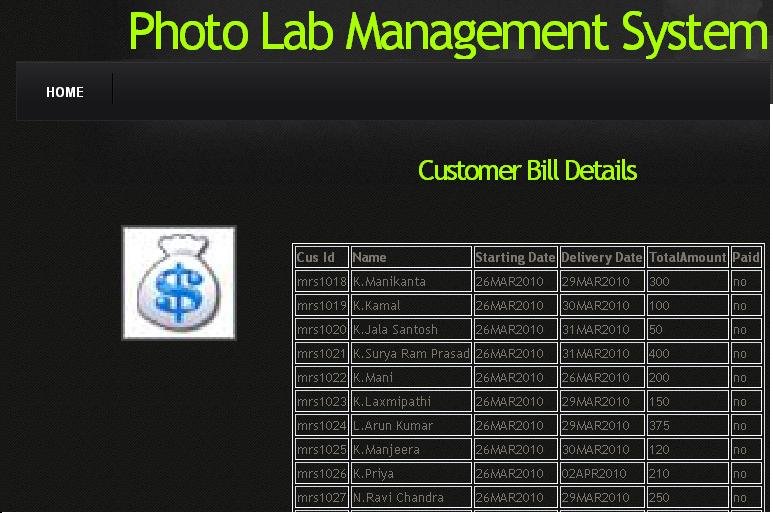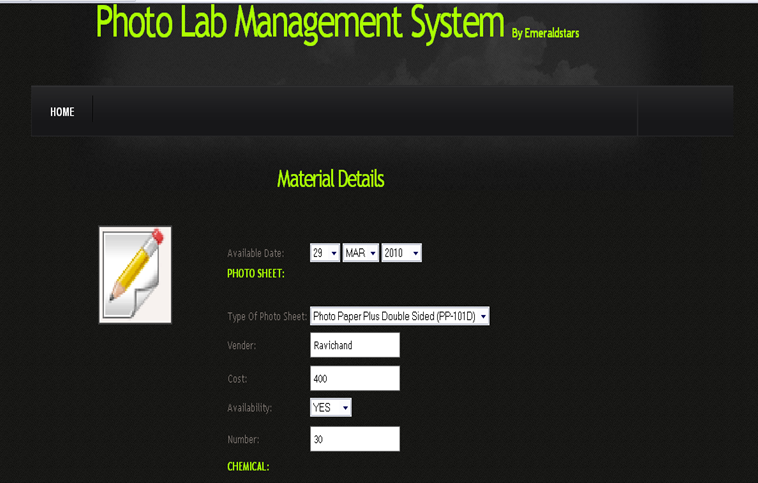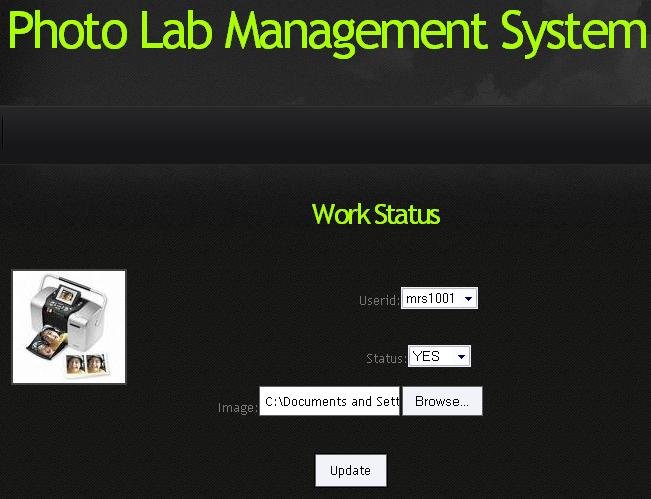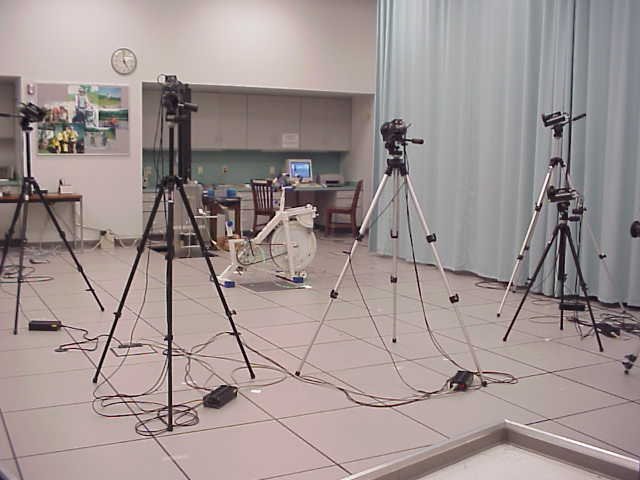Photo Lab Management System is a computerized system for complete and effective management of photo processing laboratories/labs. With this system, the billing and inventory management in photo studios can be done efficiently to ensure the optimum utilization of available resources, thereby strengthening the productivity levels.
This project is developed using Java programming language and uses Oracle as the database. All the necessary project resources including complete Java source code, project documentation, and paper presentation (ppt) can be downloaded from the link below.
Detailed description regarding database tables (DCL commands, DDL commands, DML commands), requirements, design, coding, testing, and other miscellaneous information can be referred from the project documentation. Presented below is a brief overview of the project.
Download Photo Lab Management System Java Project
[sociallocker]
Download Photo Lab Management System Java Project with Source Code, Project Report, Documentation, and ppt
[/sociallocker]
About Photo Lab Management System:
Photo Lab Management System (PLS or PLMS) is a software project developed for a typical photo studio. It is implemented on a pure Java2EE architecture with Oracle database. Here, all database transactions are done using type 4th driver which is database dependent and is a pure Java driver.
Existing System:
The existing photo lab systems include paper works for almost all the works such as details about customer billing, employee salary, customer details, materials used for photo development, etc. Every records should be entered with pen on a paper which is a very tedious, difficult, and uneconomical task.
Proposed System:
The proposed system can store huge amount of data of customer coming to the photo studio along with the details of employees working and material used in the lab. Data are stored very effectively as the procedure is category-wise.
Suppose, the data is about customer, then it will be stored under “Customers” inventory. Likewise, employee details are stored under “Employees” inventory, and details of materials are stored under “Materials” inventory. Hence, all data are effectively managed in the system database.
System Users:
- Administrator: They have complete access to all the parts of the system with roles such as handling, maintaining and managing all the components, users, and modules. They check the status of photo lab on a regular basis.
- Data Entry Operator (DEO): This user of the system is responsible for making a detailed analysis of every day details related to customer, employees, and materials. Also, they should update the data regarding billing, salaries, and materials in the system.
Modules Overview:
- Log in and registration: This allows admin to log in to the system and register the DEO details. The details are to be entered on Log in and Registration pages.
- Customer details: The customer details should be entered carefully by the DEO user-part of the system.
- Reports: After logging in to the system, the DEO can generate reports and the administrator can view these daily.
- Bills: The bills of customers are to be entered and updated by the DEO.
- Materials: Information and details regarding materials are entered and updated by the DEO on a regular basis.
- Employees: There are many employees working in the photo studio, whose details, information, and salary records are entered by the admin every month.
Project Screenshots:



System Configuration:
Technologies Used:
- UML
- J2EE – JSP, Servlets
- XML
- AJAX
Tools Used:
- Eclipse 3.3
- Apache Tomcat 5.0
- Oracle 9I
- Rational Rose 2002
- VSS
Hardware Requirements:
- 2 GB Hard-disk
- 256 MB RAM
- Keyboard, Mouse
Software Requirements:
- Windows 95/98/XP with MS-office
- Apache Tomcat server
- Java – front end
- Oracle 10g – back end
Also see,
Online Document Management System
File Transfer and Chat
More Java Projects
Conclusion:
The proposed Photo Lab management system project is very fruitful from all aspects for a typical photo studio. Details of customers, employees, and materials can be effectively managed and accessed. The only limitation is that the administrator user can only work with the administrator role but not the DEO role.







